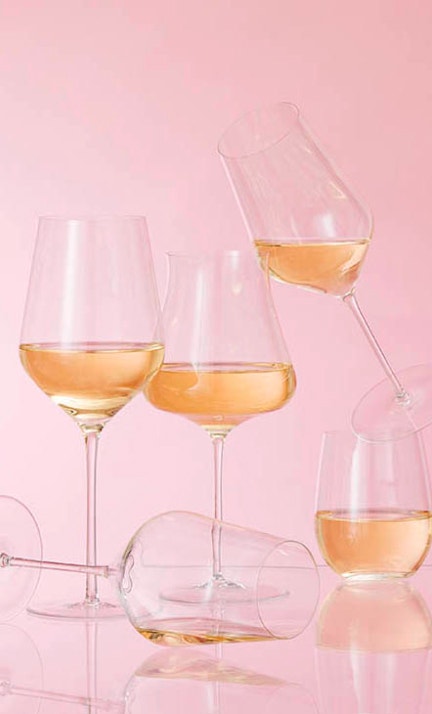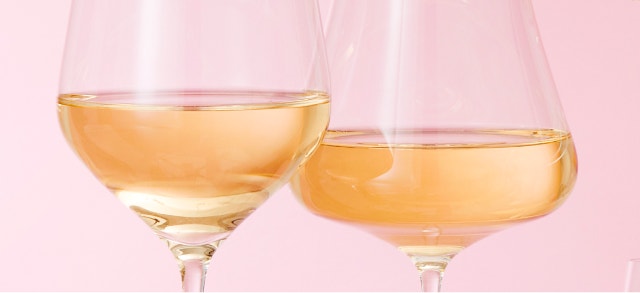Move Over, White Claw: Hard Seltzer Goes Craft

There was derision in certain drinking circles when hard seltzer first captured the beverage zeitgeist in the mid-2010s. Then, when it became apparent that the fizzy fruity category was going to become a permanent fixture in consumer fridges around 2018, many makers raced to catch up with demand.
These days it’s clear that there are two hard-seltzer options: larger national brands—like White Claw, Truly and High Noon—and craft producers and upstarts that offer smaller-batch offerings.
Hard Seltzer Finds Its Footing in Craft Spaces
Mirroring the craft beer industry of the last 20 years, a lot of the innovation in hard seltzer flavor is happening through the smaller producers. And their offerings give consumers a chance to drink local and taste a sense of place.
“Honestly, I don’t see the big brands as competition,” says Nick Smith the owner of Lumpy Ridge Brewing Co. in Estes Park, Colorado. “We’re playing different games. I believe in what makes us craft and perfectly imperfect to drive our success in this segment of the market. So, we’ll leave the synthetic tasting mass pleasers and keep it here where real knows real.”
That idea of “perfectly imperfect” comes into play for many of the smaller breweries.
At its base, hard seltzer is water, sugar and yeast that is fed nutrients during fermentation and flavoring. Large brands will pour clear, a technical feat, while smaller-batch seltzers are likely to have some haze or milkiness. Others will take on the colors of the fruit juice used for flavoring.
Those visual differences add to the overall charm of craft seltzers.
“I personally have come to actually like seltzer more than I used to,” says Alyssa Hoberer, head brewer at Jagged Mountain Brewery in Denver.
The Brewery serves its Super Soaker hard seltzer in their taproom. Clocking in at 10% alcohol by volume (ABV), it’s heftier than most hard seltzers on the market.
“I went to the bar, to our regulars, and I was like, ‘If I made a 10% [abv] seltzer, would you guys drink it?’ And it’s actually been really popular,” says Hoberer.
She says that some patrons will cut down the strong seltzer with water to bring it to a more manageable ABV—a practice common with larger producers who also brew stronger seltzer before diluting it to the 3% to 5% ABV range.
Hard Seltzer on Draft
While draft seltzer is not as popular as its canned counterpart, there is also a level of indulgence that comes into play when drinking in local taprooms, says Chris Colby, author of How to Make Hard Seltzer: Refreshing Recipes for Sparkling Libations (Brewer Publications, 2020).
“If you’re in a brewery, the calories might not even show up on the menu or on the board,” he says. “Brewers [in those situations] can make the seltzers a little sweeter. Not alcopop sweet, but certainly sweeter than what goes out to the broad market.”
Hard Seltzers Are No Longer Just for Warm Weather
Colby notes that smaller brewers can also use fruits to their advantage.
Lumpy Ridge uses fruit purees to make a strawberry rhubarb seltzer, says Smith. The brewery also makes The Continental, a rice sugar-based seltzer infused with ginger, woodruff and lemon juice.
“At the micro level, we are able to play more with flavors and ingredients,” he says.
While the refreshing nature of hard seltzer lends itself to warm weather vibes and waterfront locales, the broader category has become a year-round beverage and craft producers are capitalizing on that by releasing seasonal flavors.
Hoberer recently brewed a cranberry orange seltzer with Thanksgiving and autumn in mind.
“I have always been a person that really likes to work with fruit, I like to eat fruit [and] I like fruit beers. That’s just who I am,” she says. “I think seltzers are incredible at showcasing interesting fruit.”
By leaning into the seasonal aspect of fruits and harvests, Hoberer says breweries and seltzeries can share a story of local agriculture while highlighting their own creativity.
The Changing Field of Hard Seltzer
Despite overall sales being on the decline this year, there is still a shift happening in hard seltzer.
Sales of the malt-based versions fell by 12% over the previous three months ending in early October, according to Nielsen. But spirit-based hard seltzers, like High Noon that use vodka as its alcohol base, continue to grow. Truly and others have rolled out spirit-based versions as well in recent months.
The gluten-free aspect of hard seltzer continues to be a big draw.
Bolero Snort Brewery in Carlstadt, New Jersey is currently producing two different lines of hard seltzers that appeal to two different drinking demographics. The Broad Street line is a local alternative to bigger entities and also helps satisfy visitors to the brewery’s taproom “who don’t like or can’t have beer,” says Scott Wells, the brewery’s managing member.
Their other brand is Evil Water, a partnership with Evil Twin Brewing in Brooklyn, which they refer to as “pastry water” thanks to flavors like blueberry peach cobbler and passionfruit honey cheesecake. Those are higher in alcohol and more indulgent.
Wells says seltzers are an alternative to ready-to-drink cocktails and have found an audience in establishments that don’t want to serve more mainstream offerings or “at a bar that isn’t good at making cocktails.”
Sugar water-based seltzers might become more niche on the local level going forward, especially if a brewery does not have a distillery component.
What is clear is that the category is firmly cemented in the drinker’s consciousness and continues to shift a landscape that had long just included wine, spirits and beer.
“Obviously, only drinking seltzer and beer falling by the wayside is terrifying to me,” says Hoberer. “But I’ve always been a person who accepts trends. I feel like people also said this about hazy IPA in the beginning, that it’s just a fad [and] that it’s going away. Well, here we are seven or eight years later and it’s still around.”



